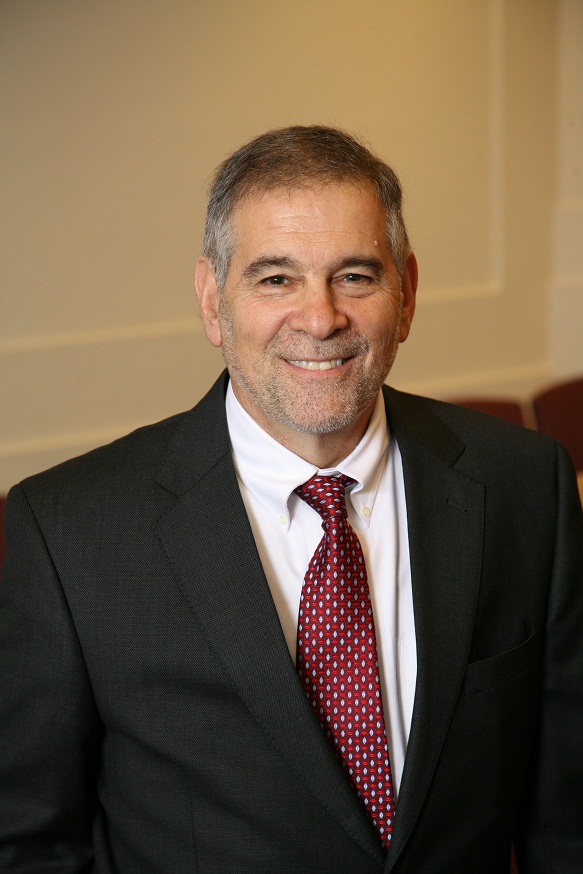This interview with Michael Berenbaum by Dr.Manfred Gerstenfeld, was published yesterday at Israel National News, and republished here with the permission of the author.
How Jewish Life and Knowledge Changed in the Past Decades
Manfred Gerstenfeld interviews Michael Berenbaum
 “Jewish life and Jewish knowledge have undergone major changes in the past decades. An insightful way to understand this is to put the new edition of the Encyclopedia Judaica side by side with the first one which came out in 1972. Comparing these two publications reveals how much communities and attitudes have changed.
“Jewish life and Jewish knowledge have undergone major changes in the past decades. An insightful way to understand this is to put the new edition of the Encyclopedia Judaica side by side with the first one which came out in 1972. Comparing these two publications reveals how much communities and attitudes have changed.
“We have seen the emergence of the university as the locale for Jewish scholarship and learning. We have also witnessed a vivid and dynamic growth in Orthodoxy. Over the past decades, the Jewish world has also become more interactive. This is in part reflected by the rise of the Internet at the expense of printed material. Much power in the world has shifted from industry and control over natural resources, to the ability to manage and get on top of the vast quantity of information that is available. A number of Jews are important players, despite the smallness of the Jewish people and the seemingly marginal nature of its resources.”
Michael Berenbaum was Executive Editor of the second edition of the Encyclopaedia Judaica. He is also Director of the Sigi Ziering Institute: Exploring the Ethical and Religious Implications of the Holocaust and Professor of Jewish studies at the American Jewish University (formerly the University of Judaism).
He observes: “The new Encyclopaedia shows first and foremost how fascinating the Jews are as a people. They contribute in every sphere of human knowledge and endeavor including arts, music, architecture, science, medicine, and so forth. Jews nowadays feel more able, freer, and more empowered to create—as Jews. They no longer fear that doing so confines them to an intellectual or cultural ghetto.
“A generation ago, many were afraid to be known as ‘Jewish authors.’ They feared that they would be considered as on the periphery of society. Now many Jews embrace that specific identity. One interesting example is that several of the most outstanding American novelists are women who are ultra-Orthodox or of ultra-Orthodox background—for example, Tova Mervis, Allegra Goodman, Pearl Abraham, and Rebecca Goldstein. They write more interesting books than almost anyone else. This was unheard of and unpredictable ten years ago.
”Some fields of study have developed dramatically since the 1970’s. One such area is Holocaust studies. In the 1970’s they were taught in two American universities only. Hebrew law and women’s studies are other areas with great development. We decided to give the latter much more attention in the new edition. Difficult decisions had to be made about addressing controversial issues such as whom to include as a Jew, the Israeli settlement movement, and homosexuality.”
Berenbaum mentions that much more has changed than knowledge alone. “My colleague Fred Skolnik, who worked on both encyclopedias, said that what struck him was the gap between the extraordinary achievements of the Jewish people over the past thirty-five years and the current mood of pessimism. 1972 – the year before the Yom Kippur war – was still a euphoric moment in Jewish unity. We wonder about the current combination of feelings of endangerment and simultaneously those of empowerment and achievement. Only psychologists can explain this.
“The 1972 encyclopedia was written with the great confidence that characterized Israel in the post-Six Day War period. It was produced in Israel and was perhaps the last and best manifestation of German Jewish scholarship that had migrated to Israel. The publishers of the new edition however, decided that they needed an American editor as the function would require a greater sense of the reality of the Diaspora.
“The new encyclopedia is written primarily by American and Israeli scholars. Almost all of the American scholars have studied in Israel. The Israeli scholars have nearly all studied, worked, and certainly published in the United States. This means that the authors in any given field have read each other’s works, spoken at each other’s conferences, been in each other’s presence, and taught at various universities. This leads to major cross-fertilization.
“Another important choice is the type of scholarship one emphasizes. We decided not to give final authority to the historians’ perspective. Some of our authors view their topics through the prisms of psychology and sociology.
“There are other aspects of how much things have changed over the past thirty-five years. When the first edition came out, Israel was the dwelling place of only a small percentage of the Jewish people. In the new edition Israel occupies an entire volume with six hundred thousand words.”
Berenbaum concludes: “The distance traveled by the Jewish people, as well as the conquest of so many fields of knowledge, is both astounding and humbling.”
Le Dr. Manfred Gerstenfeld préside le Conseil d’Administration du Centre des Affaires Publiques de Jérusalem. Il a publié 20 ouvrages. Plusieurs d’entre eux traitent d’anti-israélisme et d’antisémitisme.

